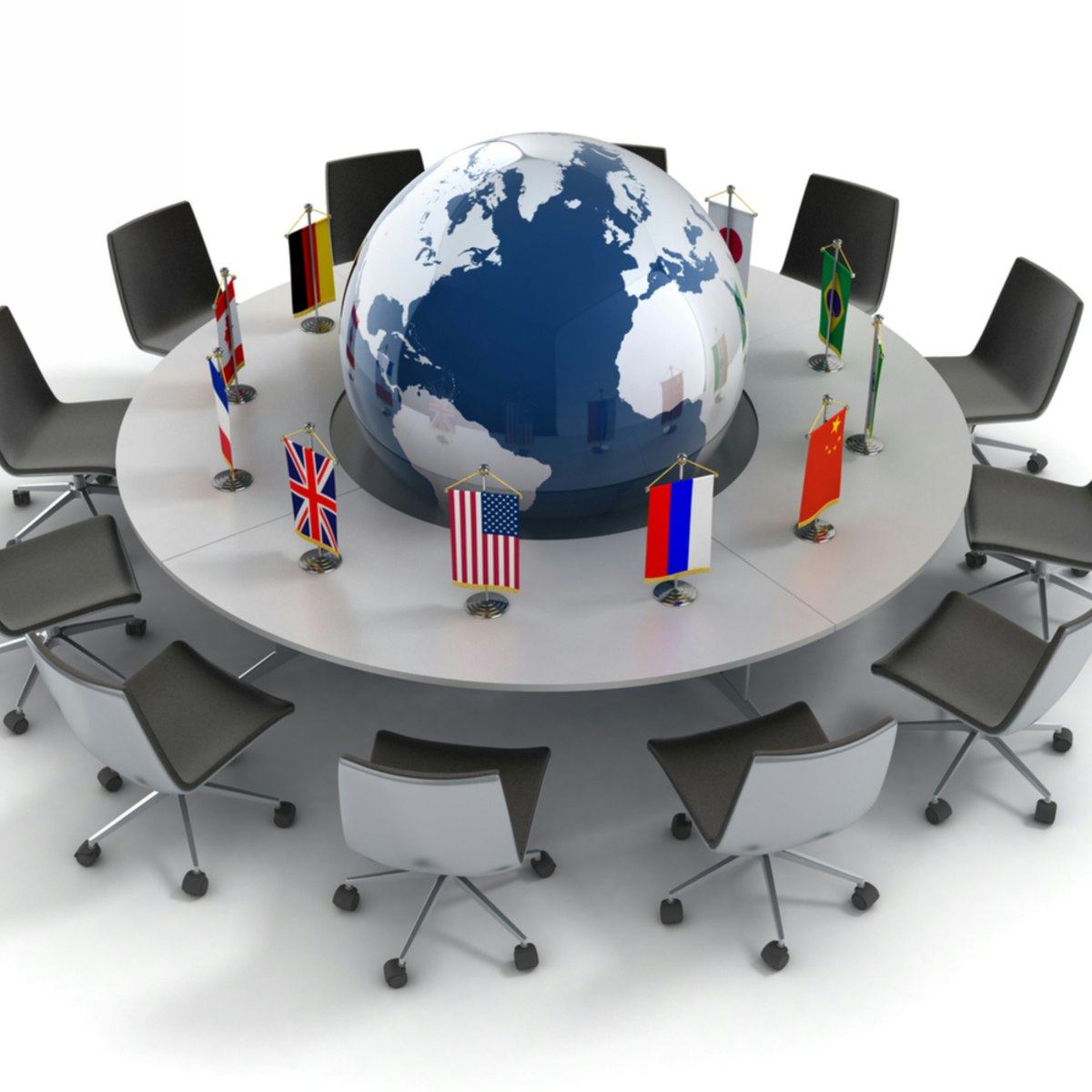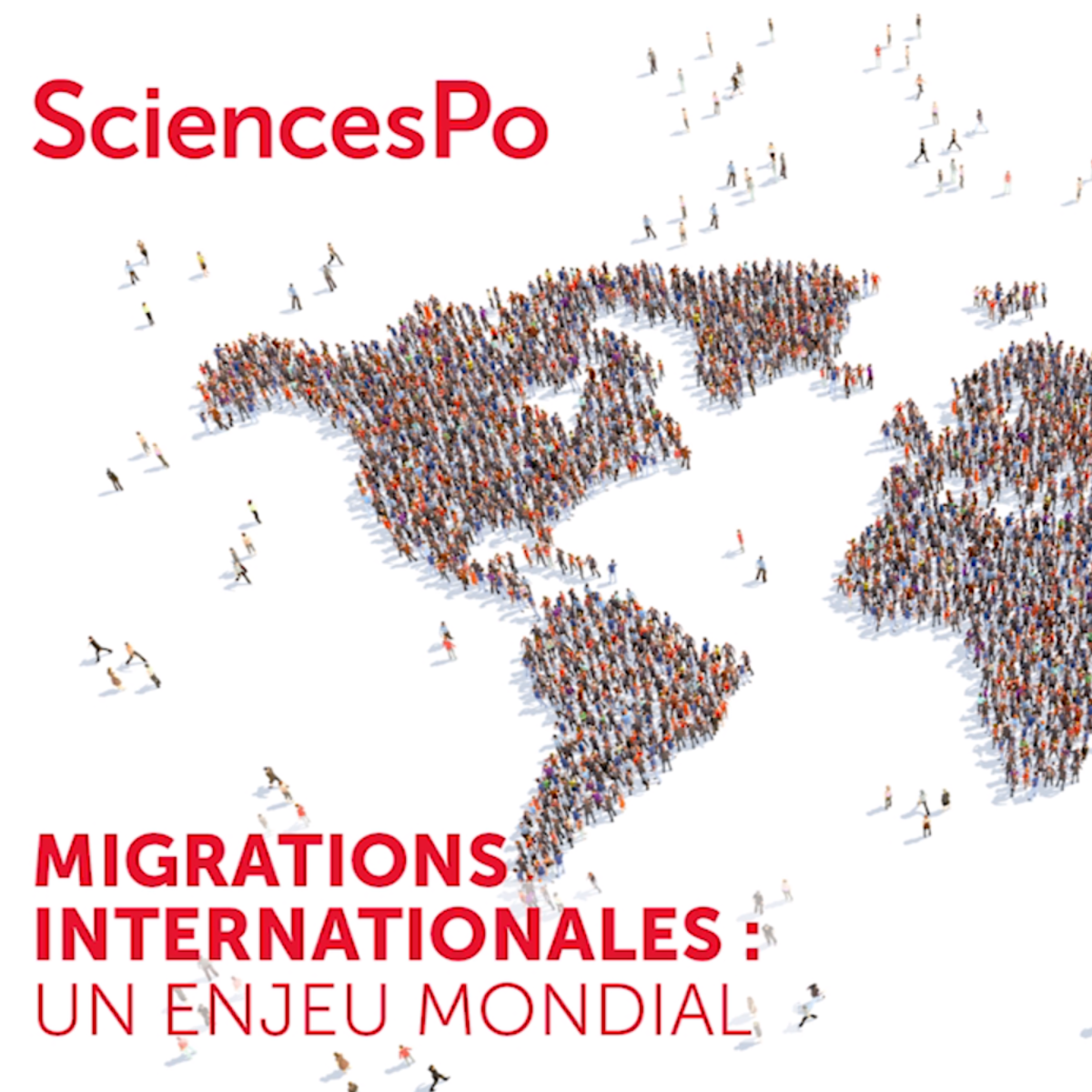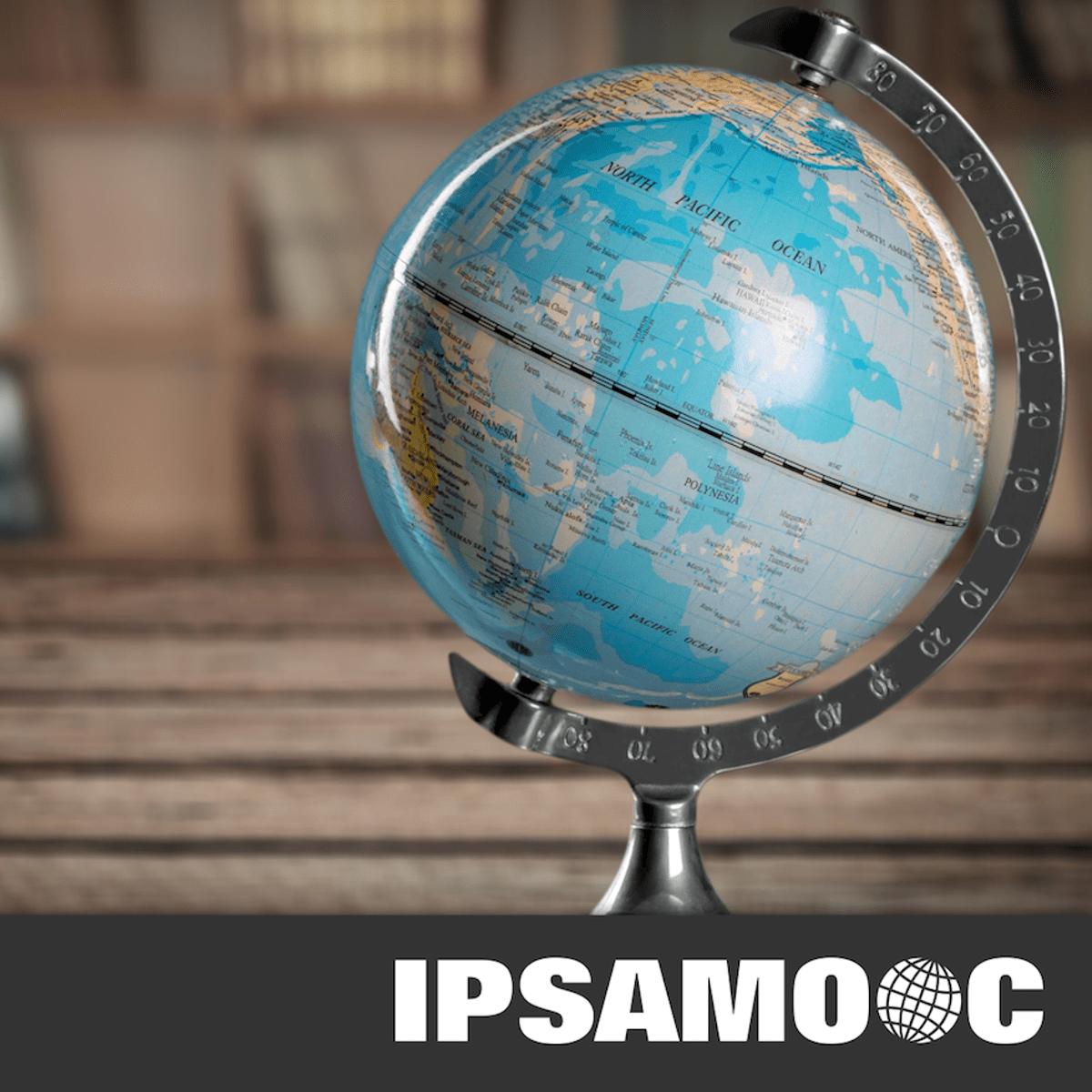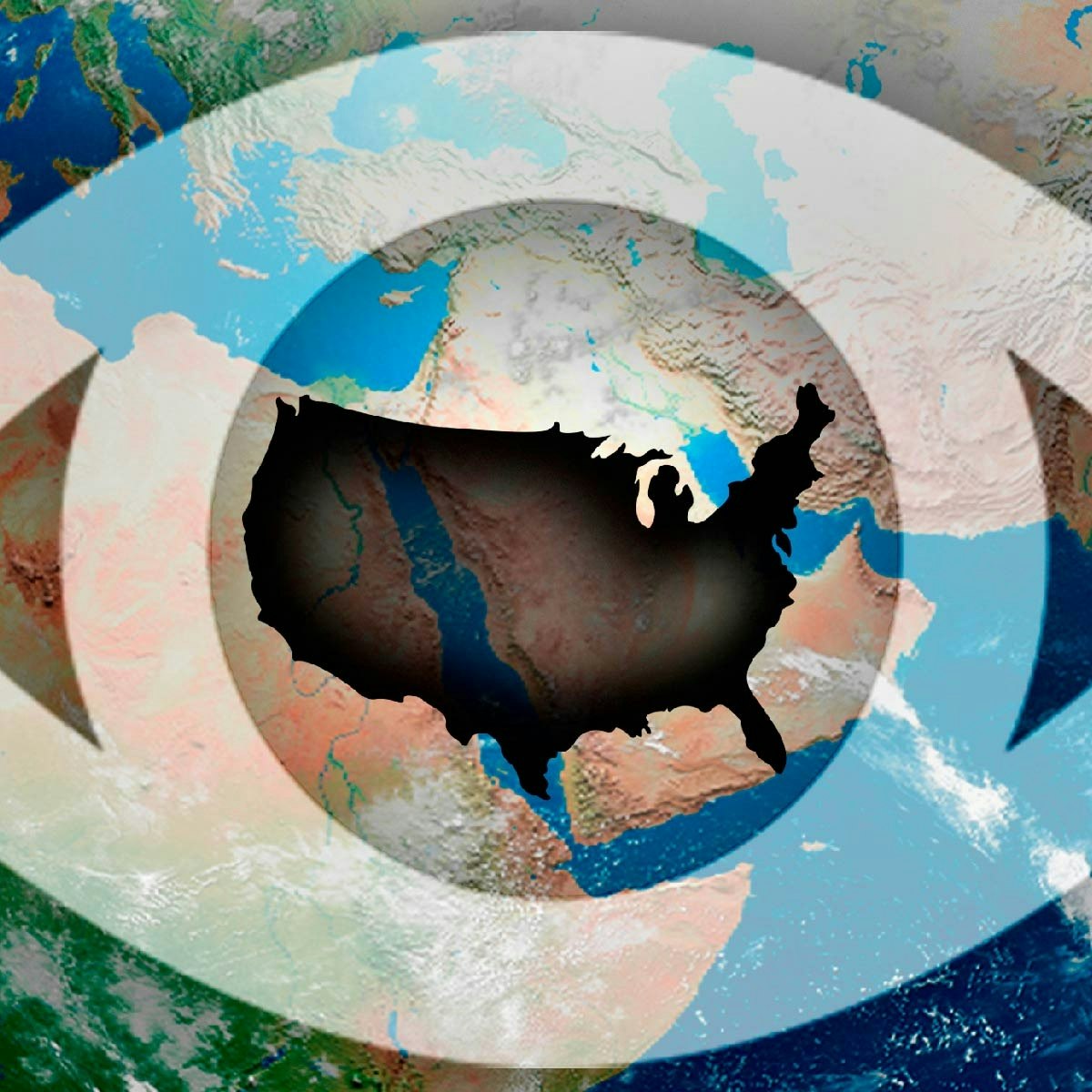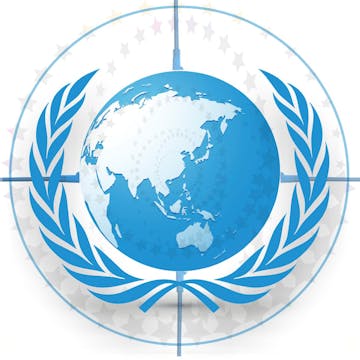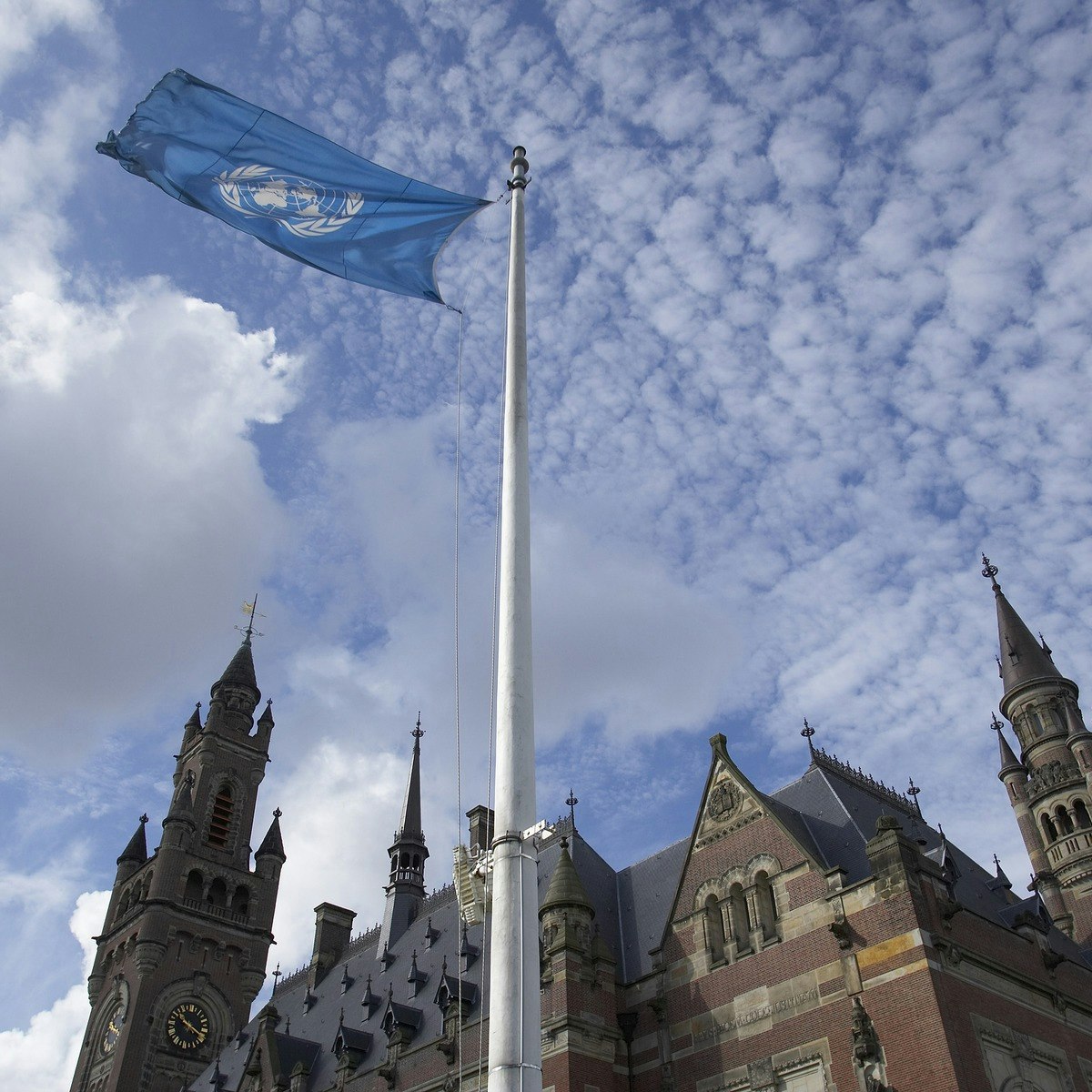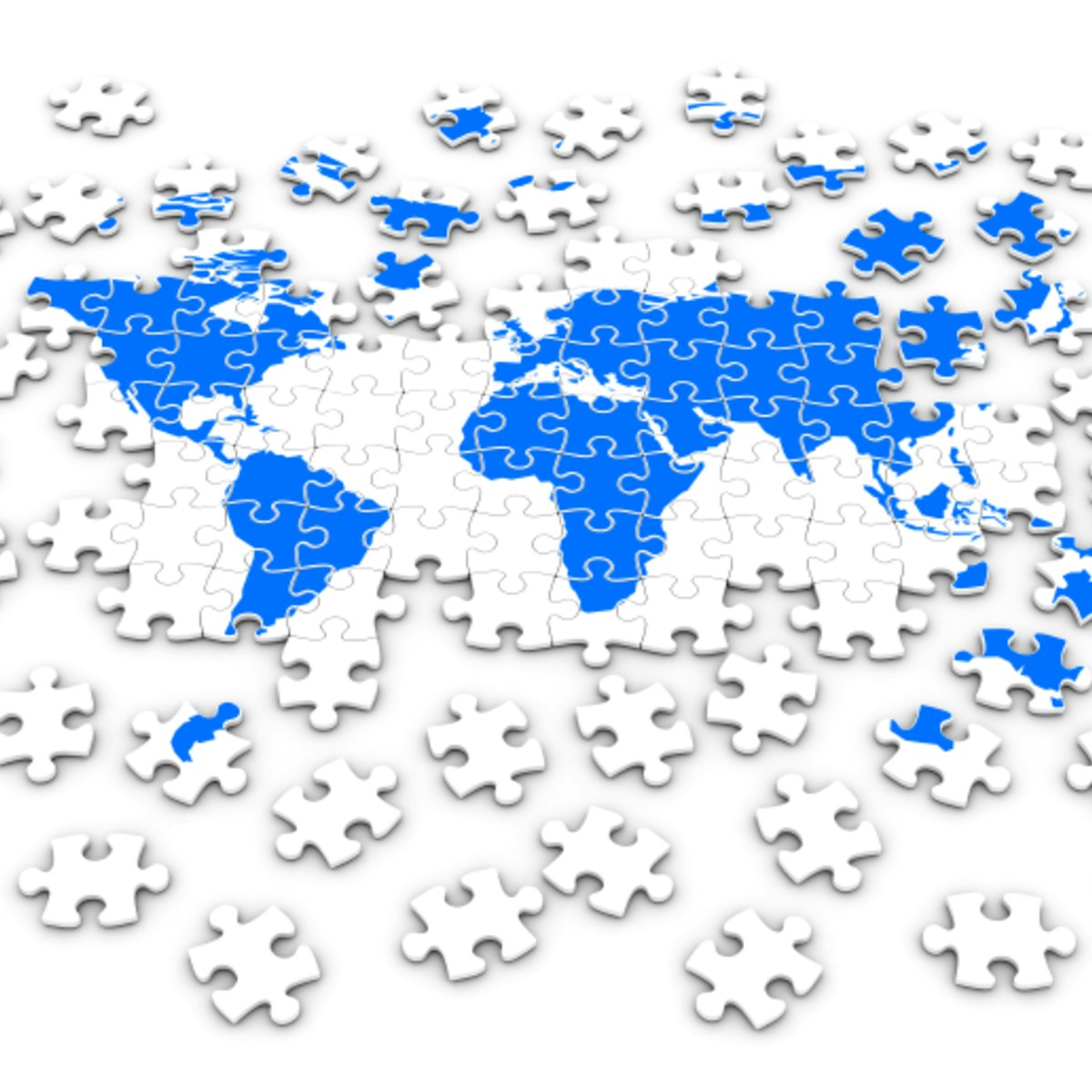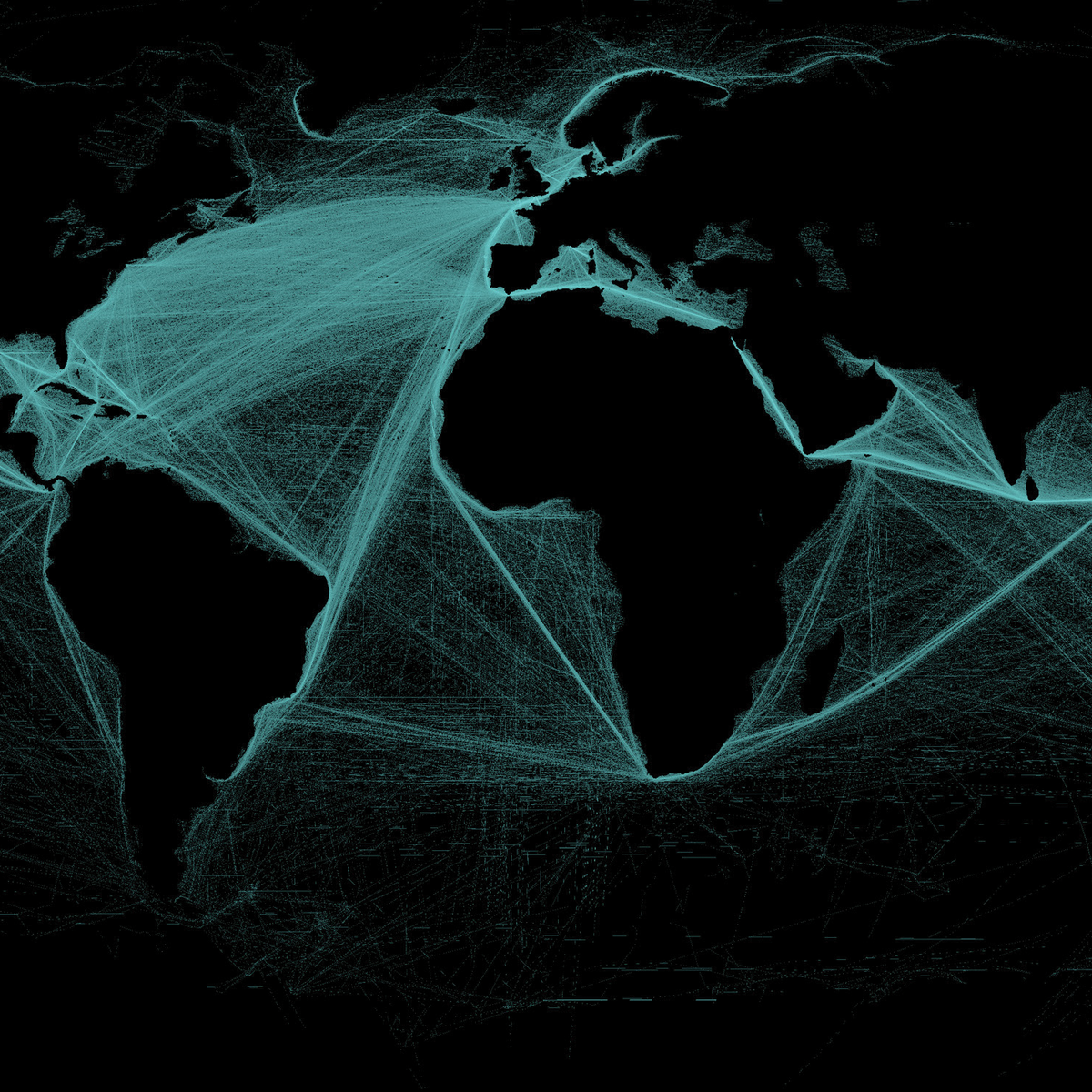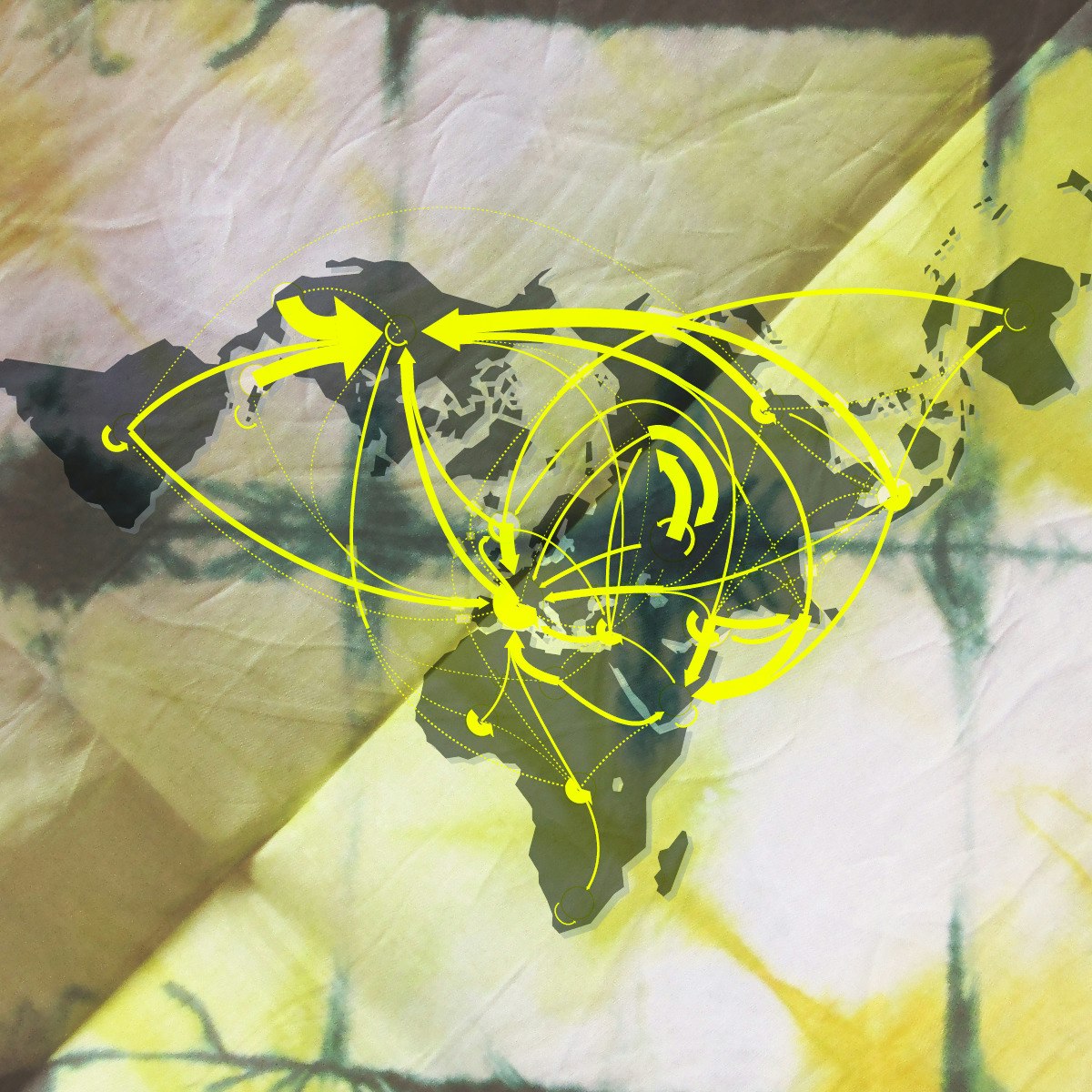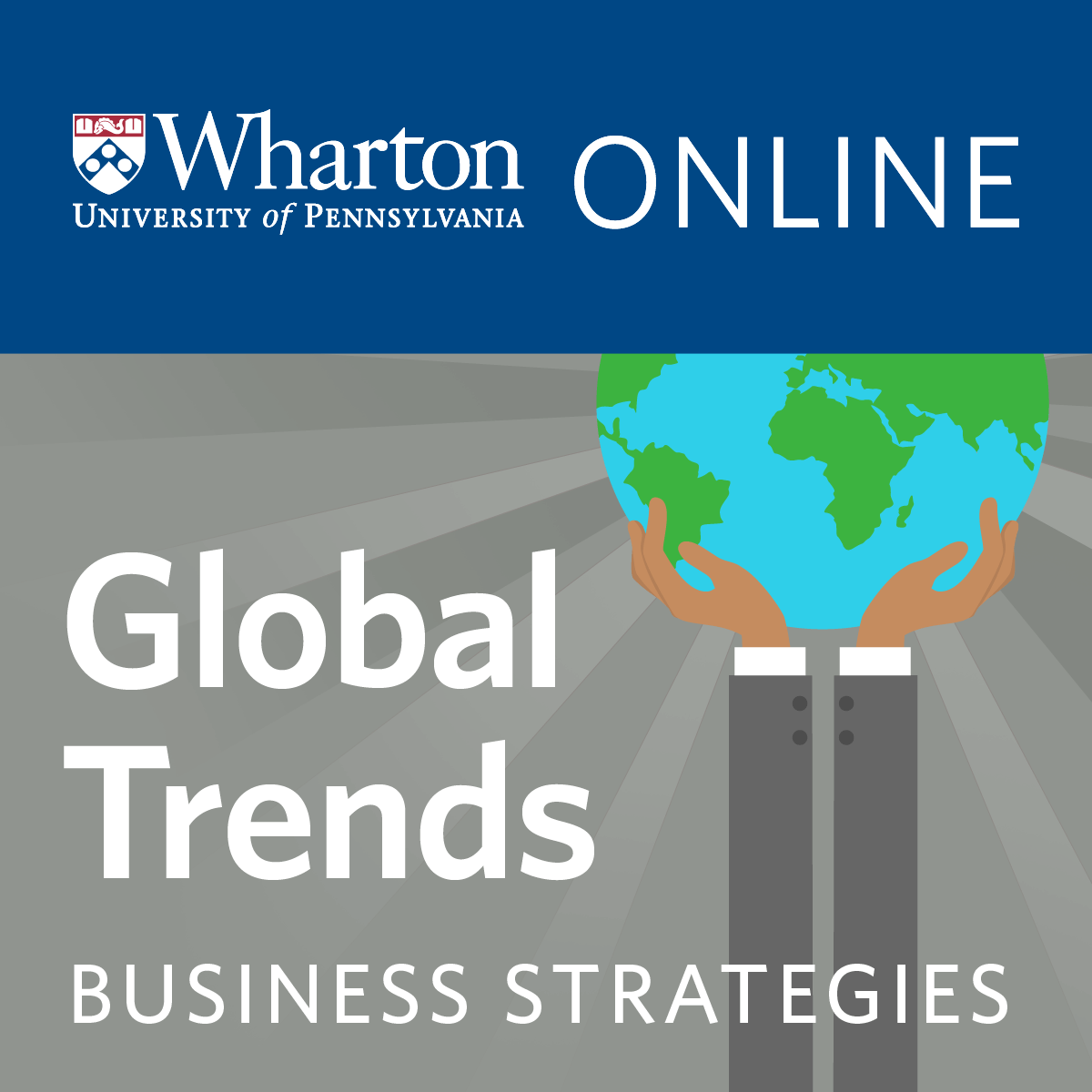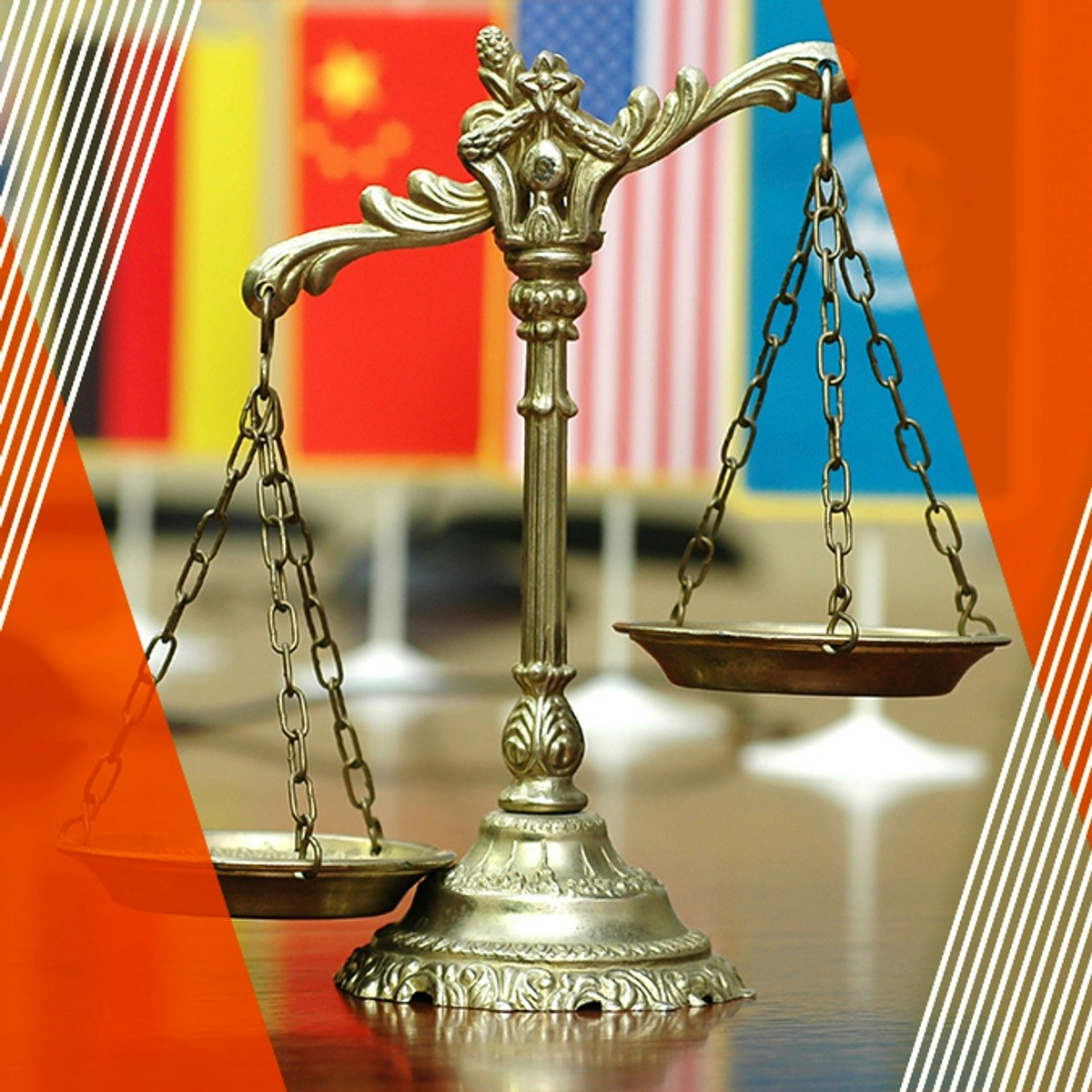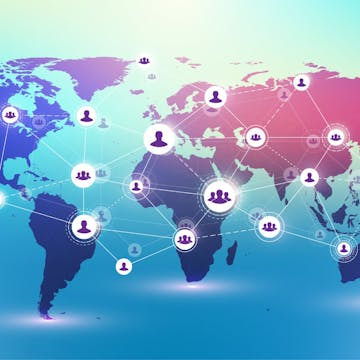International Relations Analyst
Navigating Global Currents: A Career as an International Relations Analyst
An International Relations Analyst, sometimes referred to as a Foreign Affairs Analyst, delves into the complex web of relationships between nations, international organizations, and other global actors. Their primary objective is to understand and interpret these interactions, providing insights and analyses that inform the strategic decisions of governments, non-governmental organizations (NGOs), and private sector entities. This field requires a keen understanding of how a nation's culture, politics, economics, governance, law, and security influence its place and actions on the world stage.
Working as an International Relations Analyst can be deeply engaging. It involves dissecting global political and socioeconomic information to identify trends, potential risks, and opportunities. Professionals in this role often find themselves at the forefront of understanding and shaping responses to major global events, from trade negotiations to security challenges. The ability to contribute to policy formation and strategic planning, potentially impacting international peace, economic development, or humanitarian efforts, is a significant draw for many in this field.
This article will guide you through the multifaceted world of the International Relations Analyst, exploring the responsibilities, skills, educational pathways, and career opportunities associated with this dynamic profession. Whether you are a student charting your academic course, a professional considering a career shift, or simply curious about the field, we aim to provide a comprehensive overview to help you determine if this path aligns with your aspirations.
Introduction to International Relations Analyst
At its core, the role of an International Relations Analyst involves the systematic study and interpretation of interactions between states, international organizations, and various non-state actors. Analysts aim to understand the drivers of foreign policy, the dynamics of global power, and the intricate connections that shape international cooperation and conflict. This profession demands a nuanced understanding of how individual nations' cultures, political systems, economic policies, and security concerns impact global affairs.
The field is critical for making sense of a complex and ever-evolving global landscape, providing the necessary context for informed decision-making in a variety of sectors. Analysts help organizations navigate the complexities of international affairs, whether for diplomatic engagement, economic strategy, or humanitarian intervention.
Defining the Role and Its Core Objectives
An International Relations Analyst, also known as a foreign affairs analyst, is an expert in one or more facets of international relations. These areas can include foreign policy, international trade, national security, the dynamics of developing nations, and more. The fundamental goal of an analyst is to support their employer's strategic objectives by delivering informed analysis and insights concerning international activities, policies, and programs.
Their work involves in-depth research into issues within their specific area of expertise that could affect the policies and stances of governments, humanitarian organizations, or multinational corporations. This research underpins their efforts to assist in the development of plans and policy formation. Furthermore, they analyze the functioning of various agencies and organizations and their impact on international relations.
Ultimately, the analyses provided by International Relations Analysts help non-governmental organizations, government agencies, and private sector companies to formulate or adjust their policies in response to developments in strategically significant parts of the world. They also examine the influence and effect of an organization or agency within a particular country or region.
A Brief Look at the Evolution of the Profession
The study of international relations as a distinct academic discipline gained significant traction, particularly in the interwar period following World War I. Early on, there was a strong focus on understanding the causes of war and the mechanisms for peace, with intensive study devoted to international organizations like the League of Nations. Scholars during this era broadened the scope of inquiry to include a wide range of topics such as the influence of nationalism, imperialism, colonialism, economic disparities between countries, and the role of public opinion in world affairs.
World War II further spurred the systematic social-scientific investigation of international phenomena, as many experts in the nascent field were enlisted by governments for intelligence, propaganda, and wartime planning. This period highlighted the practical importance of understanding international dynamics. Over the decades, the profession has continued to evolve, adapting to new global challenges such as the Cold War, decolonization, globalization, and more recently, issues like climate change, cyber warfare, and transnational terrorism.
Today, the field is characterized by its interdisciplinary nature, drawing insights from political science, history, economics, law, sociology, and other disciplines to analyze the complex interactions shaping our world. The International Relations Analyst of the 21st century operates in an environment of rapid information flow and increasing interconnectedness, requiring sophisticated analytical skills and a global perspective.
Key Sectors Employing International Relations Analysts
International Relations Analysts find opportunities across a diverse range of sectors, including government, non-governmental organizations (NGOs), intergovernmental organizations (IGOs), and the private sector. Governmental agencies, particularly those dealing with foreign affairs, defense, and intelligence, are significant employers. These roles often involve policy analysis, diplomatic support, and intelligence gathering.
IGOs such as the United Nations (UN), the World Bank, and UNICEF also rely on the expertise of International Relations Analysts to inform their programs and policies related to international development, peacekeeping, and humanitarian aid. NGOs, including organizations like Oxfam, Greenpeace, and Médecins Sans Frontières, employ analysts to support their advocacy, research, and operational efforts in areas such as human rights, environmental protection, and global health.
The private sector, particularly multinational corporations and financial institutions, increasingly hires International Relations Analysts to assess political risk, understand international market dynamics, and navigate the complexities of global business. Media companies also employ analysts to provide context and expert commentary on international events. Furthermore, think tanks and academic institutions offer roles for analysts focused on research and policy development.
For those seeking to deepen their understanding of global diplomatic practices and the functioning of international organizations, several online courses can provide valuable insights. These courses often cover the theoretical underpinnings of international relations and contemporary global issues.
Key Responsibilities of an International Relations Analyst
The day-to-day work of an International Relations Analyst is dynamic and multifaceted, requiring a blend of research, analytical, and communication skills. Their core function is to make sense of the complex global environment and provide actionable insights to their employers. This involves a continuous process of gathering information, evaluating its significance, and communicating findings effectively.
These professionals are tasked with understanding intricate political and socioeconomic information, conducting independent research, and preparing detailed reports and briefings. Their work directly contributes to strategic decision-making, policy formulation, and effective engagement with international actors.
Monitoring Global Political and Economic Trends
A primary responsibility of an International Relations Analyst is to continuously monitor and analyze global political and economic trends. This involves staying abreast of current events, understanding the political dynamics within and between countries, and tracking economic indicators that can impact international stability and an organization's interests. They must be adept at identifying emerging patterns, potential flashpoints, and shifts in geopolitical landscapes.
This monitoring extends to a wide array of issues, including elections, legislative changes, social movements, trade negotiations, and resource conflicts. Analysts often specialize in particular geographic regions or thematic areas, allowing them to develop deep expertise. The goal is to provide early warnings of potential risks and to identify opportunities that align with their employer's objectives.
This requires not only following news and official reports but also delving into academic research, think tank publications, and local sources to gain a comprehensive understanding. The ability to synthesize vast amounts of information from diverse sources is crucial for this aspect of the role. The insights gained from this monitoring form the basis for further analysis and policy advice.
For those interested in understanding the broad forces shaping our world, courses on globalization and international migrations offer foundational knowledge.
Policy Analysis and Advisory Functions
A significant part of an International Relations Analyst's role involves policy analysis and providing advisory functions. This means evaluating existing or proposed policies, whether domestic or international, to understand their potential impact on international relations or an organization's specific interests. Analysts assess the effectiveness of policies, identify unintended consequences, and compare alternative courses of action.
Based on their analysis, they formulate policy or program recommendations. These recommendations are often presented in the form of written reports, policy briefs, or oral presentations to senior decision-makers. The ability to communicate complex analyses clearly and concisely to diverse audiences, including those without specialized knowledge, is paramount.
This advisory function requires a deep understanding of the policy-making process, the interests of various stakeholders, and the potential geopolitical ramifications of different policy choices. Analysts must be able to defend their recommendations with evidence-based arguments and adapt their advice as new information emerges or circumstances change.
Risk Assessment and Scenario Planning
International Relations Analysts are often tasked with assessing political and economic risks in different countries or regions. This involves identifying potential threats to an organization's operations, investments, or objectives stemming from political instability, regulatory changes, social unrest, or international conflicts. They analyze the likelihood and potential impact of these risks, helping organizations to mitigate them.
Scenario planning is another key responsibility, particularly in volatile or uncertain environments. Analysts develop plausible future scenarios based on current trends and potential trigger events. This helps organizations to anticipate different outcomes and develop contingency plans. For example, an analyst might assess the potential impact of a trade agreement failing or a specific political faction gaining power in a key country.
This aspect of the role requires strong analytical skills, the ability to think critically about complex systems, and a degree of foresight. It's about understanding not just what is happening, but what could happen, and preparing for those eventualities. Such analyses are crucial for organizations operating in a globalized and often unpredictable world.
Understanding the theoretical underpinnings of international relations, such as liberalism, can aid in analyzing state behavior and assessing risks. The following course delves into one such influential theory.
Stakeholder Engagement and Diplomacy
While not always in a formal diplomatic role, International Relations Analysts frequently engage with a variety of stakeholders. This can include government officials, representatives of international organizations, academics, business leaders, and civil society groups. Effective communication and the ability to build relationships across cultures are vital.
In some roles, analysts may be involved in preparing materials for diplomatic negotiations or even participating in discussions. They might also be responsible for representing their organization at international conferences or meetings. This requires strong interpersonal skills, cultural sensitivity, and the ability to articulate their organization's position clearly and persuasively.
Even when not directly involved in formal diplomacy, their research and analysis often support diplomatic efforts. By providing a deep understanding of the interests, perspectives, and constraints of different actors, analysts help to inform more effective engagement strategies. This can involve collaborating with foreign counterparts and facilitating cross-cultural communication.
Simulations like Model United Nations can offer practical experience in diplomacy and stakeholder engagement. These courses provide an introduction to such simulations and the broader UN system.
To gain further insight into the world of international law and institutions, consider exploring the following book.
Core Skills and Competencies
A successful career as an International Relations Analyst hinges on a distinct set of skills and competencies. These abilities allow analysts to dissect complex global issues, communicate their findings effectively, and navigate diverse cultural contexts. Developing these skills is crucial for anyone aspiring to enter or advance in this demanding yet rewarding field.
Many of these competencies are transferable, meaning they are valuable not only in international relations but also in a wide array of other professions. This can be particularly encouraging for those considering a career pivot or wishing to keep their options open. The emphasis is on rigorous thinking, clear communication, and a nuanced understanding of the world.
Analytical and Critical Thinking
Strong analytical and critical thinking skills are arguably the most fundamental requirements for an International Relations Analyst. Analysts must be able to gather, evaluate, and interpret large volumes of information from diverse sources, discerning patterns, biases, and underlying causes. This involves breaking down complex problems into manageable parts and examining them from multiple perspectives.
Critical thinking enables analysts to question assumptions, identify logical fallacies, and assess the validity of arguments. They need to move beyond surface-level descriptions to understand the deeper drivers of international events and behaviors. This skill is essential for producing insightful analysis, making sound judgments, and developing effective policy recommendations.
Creativity also plays a role within analytical thinking, allowing analysts to devise innovative solutions to complex global problems and consider unorthodox strategies. The ability to identify key trends and challenges in global events is a direct outcome of strong analytical capabilities.
Courses focusing on political systems and theories can help sharpen these analytical and critical thinking abilities.
Cross-Cultural Communication
Given the inherently international nature of the work, effective cross-cultural communication is indispensable. International Relations Analysts must be able to interact respectfully and productively with individuals from diverse cultural backgrounds. This involves more than just language proficiency; it requires an understanding of different cultural norms, communication styles, and perspectives.
Analysts need to be adept at conveying complex ideas clearly and persuasively to varied audiences, both verbally and in writing. This includes adapting their communication style to suit the cultural context and the specific audience, whether they are briefing policymakers, negotiating with international partners, or presenting research findings to the public.
Misunderstandings arising from cultural differences can have significant consequences in international affairs. Therefore, the ability to navigate these nuances with sensitivity and skill is highly valued. This also includes the ability to build rapport and trust with individuals from different backgrounds, which is crucial for effective collaboration and information gathering.
The following courses explore intercultural dynamics and communication in international contexts, which are vital for any aspiring International Relations Analyst.
For those interested in a deeper dive into cross-cultural understanding, particularly in a specific regional context, books exploring globalization and cultural exchange can be beneficial.
Quantitative and Qualitative Research Methods
International Relations Analysts rely on a robust toolkit of research methods to gather and analyze information. Proficiency in both quantitative and qualitative approaches is often necessary. Qualitative research may involve conducting interviews, analyzing historical documents, undertaking case studies, and interpreting texts to understand contexts, motivations, and processes.
Quantitative research involves the collection and analysis of numerical data, using statistical techniques to identify trends, test hypotheses, and model relationships. This could include analyzing trade data, public opinion surveys, conflict datasets, or economic indicators. Familiarity with data analysis software and statistical methods can be a significant asset.
The ability to design research projects, select appropriate methodologies, collect and manage data rigorously, and interpret findings accurately is essential. Analysts must also be able to critically evaluate the research of others, understanding the strengths and limitations of different approaches. A strong foundation in research methods underpins the credibility and impact of their analyses.
These books provide foundational knowledge relevant to research in social sciences and understanding global dynamics.
Fluency in Multiple Languages
While not always a mandatory requirement for every role, fluency in one or more foreign languages is a significant advantage for an International Relations Analyst and can be essential for certain positions. Language skills allow for direct access to information from foreign sources, including media, official documents, and academic research, without relying on translations which may lose nuance or introduce bias.
Proficiency in other languages greatly enhances the ability to conduct fieldwork, engage with local populations, and build relationships with international counterparts. It demonstrates a commitment to understanding other cultures and can open doors to a wider range of career opportunities, particularly those involving specific geographic regions or international postings.
Even for analysts who primarily work with English-language sources, an understanding of other languages can provide valuable context and a deeper appreciation of different perspectives. Given the global nature of the field, investing in language learning is often a worthwhile endeavor for aspiring and practicing analysts. Some organizations may require proficiency in specific languages based on their operational focus.
For those looking to acquire or improve their language skills, OpenCourser offers a variety of language courses. You can explore options for specific languages by visiting the Languages category page.
Geopolitical Awareness
A deep and broad geopolitical awareness is crucial for International Relations Analysts. This involves understanding the major political, economic, social, and historical forces that shape relationships between countries and regions. It requires knowledge of international institutions, power dynamics, security challenges, and key global issues such as climate change, trade, and human rights.
Analysts need to understand the historical context of current events and how past interactions influence present-day relations. They must also be aware of the strategic interests and foreign policy orientations of major global and regional actors. This comprehensive understanding allows them to analyze events holistically and anticipate potential developments.
Staying informed about geopolitical shifts is an ongoing process, requiring continuous learning and engagement with a wide range of information sources. This awareness is not just about knowing facts; it's about understanding the interconnectedness of global events and the underlying drivers of international behavior. It is the foundation upon which all other analytical tasks are built.
Courses examining specific regional dynamics or global security issues can significantly enhance geopolitical awareness.
The following books offer deeper insights into the theories and practice of international relations, which are fundamental to geopolitical awareness.
Formal Education Pathways
Embarking on a career as an International Relations Analyst typically begins with a strong educational foundation. While specific requirements can vary by employer and role, certain academic paths are more common and provide the necessary knowledge and skills for success in this field. Aspiring analysts should carefully consider their educational choices to align with their career goals.
A solid academic background not only equips individuals with theoretical understanding but also hones the analytical, research, and communication skills essential for the profession. Many pathways exist, from undergraduate degrees to advanced doctoral studies, each catering to different levels of specialization and career aspirations.
Relevant Undergraduate Degrees
A bachelor's degree is generally the minimum educational requirement for entry-level positions in international relations. Degrees in Political Science, International Relations, or International Studies are the most direct routes. These programs typically cover core concepts in international theory, comparative politics, foreign policy analysis, and global governance.
Other relevant undergraduate fields include Economics, History, Geography, Sociology, and Area Studies (e.g., Asian Studies, European Studies, Latin American Studies). A background in economics can be particularly valuable for roles focusing on international trade or development. Similarly, a history degree provides crucial context for understanding contemporary global issues.
Regardless of the specific major, coursework emphasizing research methods (both qualitative and quantitative), writing, critical thinking, and communication skills is highly beneficial. Gaining proficiency in a foreign language during undergraduate studies is also a significant asset.
Several foundational courses can provide a strong start for undergraduates interested in this field.
Graduate Programs and Specialized Certifications
For many roles, particularly those involving more advanced analysis, policy development, or research, a master's degree is often preferred or required. A Master of Arts (MA) or Master of Science (MS) in International Relations, International Affairs, Political Science, Public Policy, or a related field can provide deeper specialized knowledge and enhanced analytical skills.
Graduate programs often allow students to specialize in a particular functional area (e.g., international security, international development, international law, human rights) or a specific geographic region. This specialization can make candidates more competitive for certain types of positions. Many master's programs also include opportunities for internships or capstone projects, providing valuable practical experience.
In addition to full degree programs, specialized certifications can be beneficial, particularly for professionals seeking to enhance their expertise in a niche area. These might include certifications in areas like global security, conflict resolution, or specific analytical techniques. While not a substitute for a degree, they can complement existing qualifications.
Advanced courses focusing on specific aspects of international law or regional studies can be valuable components of graduate-level learning or professional development.
The following books offer comprehensive insights often covered in graduate-level studies, exploring the theoretical frameworks and historical context of international relations.
PhD Routes for Academic or Advanced Policy Roles
A Doctor of Philosophy (PhD) is typically pursued by individuals aiming for careers in academia, such as university professors who combine teaching with research. A PhD is also often necessary for high-level research positions in think tanks or senior analytical roles in government that require deep subject matter expertise and original research capabilities.
PhD programs in International Relations or Political Science involve several years of advanced coursework, comprehensive examinations, and the completion of a doctoral dissertation based on original research. This path develops highly specialized knowledge and advanced research skills. Most PhD candidates choose to specialize in one of the primary subfields of political science, such as comparative politics, international relations, or political theory.
While a PhD opens doors to certain advanced roles, it is a significant time commitment and may not be necessary or even advantageous for all career paths in international relations. Aspiring analysts should carefully consider their long-term career goals when deciding whether to pursue doctoral studies. For many practitioner roles, a master's degree combined with relevant experience is sufficient.
Importance of Interdisciplinary Studies
The field of international relations is inherently interdisciplinary, drawing on insights from a wide range of academic disciplines. Therefore, an educational background that incorporates interdisciplinary studies is highly valuable. Understanding global issues requires more than just a political lens; it also necessitates considering economic factors, historical contexts, social dynamics, cultural nuances, and legal frameworks.
Students benefit from taking courses in fields such as economics, history, sociology, anthropology, law, and geography alongside their core international relations or political science studies. This broadens their analytical toolkit and enables them to approach complex global challenges from multiple perspectives. For example, analyzing a trade dispute requires understanding not only the political motivations but also the economic impacts and historical precedents.
Many universities offer programs or encourage coursework that emphasizes these interdisciplinary connections. This approach helps to cultivate well-rounded analysts who can think holistically about international affairs and develop more comprehensive and effective solutions to global problems. An interdisciplinary foundation is key to navigating the complexities of the modern world.
Engaging with courses that bridge different fields, such as the intersection of politics, history, and global issues, can be particularly enriching.
Exploring topics like global issues and the role of non-state actors can further broaden an interdisciplinary understanding.
Online and Independent Learning Strategies
While formal education provides a strong foundation, the journey to becoming an effective International Relations Analyst, or excelling in the role, increasingly incorporates online and independent learning strategies. These avenues offer flexibility, allowing individuals to tailor their learning to specific interests or career needs, supplement formal degrees, or facilitate a career transition into the field. OpenCourser, with its vast catalog of online courses and books, is an excellent resource for self-directed learners.
For those new to the field or considering a pivot, online learning can be an accessible way to build foundational knowledge and explore different facets of international relations. For practicing professionals, it offers a means to stay updated on emerging trends, acquire new analytical tools, or deepen expertise in specialized areas. Successfully leveraging these resources requires discipline, proactive engagement, and a strategic approach to learning.
Online courses are highly suitable for building a foundational understanding of international relations. They can introduce learners to core theories, historical contexts, and contemporary global issues. Platforms like OpenCourser allow learners to easily browse through thousands of courses, save interesting options to a list, compare syllabi, and read summarized reviews to find the perfect online course to begin their journey or supplement their existing knowledge.
Essential Topics for Self-Study
Self-directed learners should prioritize topics that form the bedrock of international relations analysis. Key areas include theories of international relations (e.g., realism, liberalism, constructivism), the history of international relations, the workings of international law and organizations, and contemporary global challenges such as climate change, cybersecurity, and global health. Understanding frameworks of global governance is also critical.
Delving into specific regional studies (e.g., East Asian politics, European Union affairs, Middle Eastern dynamics) can provide valuable contextual knowledge. Economic principles, particularly international political economy and development economics, are also highly relevant. [43, peyh78] Furthermore, staying updated on current global events and their analyses through reputable news sources, academic journals, and think tank reports is an ongoing self-study requirement.
Aspiring analysts can benefit from exploring topics such as foreign policy analysis, conflict resolution and negotiation techniques, and the methodologies of political and social research. Understanding how data is collected, analyzed, and presented in the field is crucial. Many online resources, including open-access academic papers and public lectures from universities, can support self-study in these areas.
Several online courses offer deep dives into specific theories or regional issues pertinent to international relations.
For those seeking foundational texts or deeper exploration, the following books offer valuable insights into international relations theories and specific regional contexts.
Building Practical Experience through Simulations or Case Studies
Theoretical knowledge is essential, but practical application solidifies understanding and develops critical skills. Online courses and independent study can be supplemented by engaging in activities that simulate real-world challenges. Model United Nations (MUN) simulations, for example, offer a hands-on way to learn about diplomacy, negotiation, and the functioning of international bodies. [8djw2o, 5wq44k]
Analyzing historical or contemporary case studies is another effective method. This involves dissecting a specific international event, crisis, or policy decision to understand the actors involved, their motivations, the strategies employed, and the outcomes. Many academic resources and online courses provide detailed case studies for analysis. This can help learners apply theoretical concepts to real-world situations and develop their analytical and problem-solving abilities.
Some online platforms may offer interactive simulations or problem-based learning modules focused on international affairs. Learners can also seek out opportunities to participate in policy brief competitions or contribute to online forums and discussion groups centered on global issues. These activities help bridge the gap between knowledge acquisition and practical skill development, making learning more engaging and relevant.
Engaging with courses that focus on contemporary global issues or specific diplomatic practices can provide context for case studies and simulations.
Leveraging Open-Access Academic Resources
A wealth of high-quality academic resources is available online, often free of charge, which can be invaluable for independent learners. University departments of political science and international relations frequently publish working papers, lecture series, and faculty research. Think tanks and research institutes focusing on international affairs (such as the Council on Foreign Relations, Brookings Institution, or Chatham House) produce a steady stream of reports, analyses, and event recordings accessible online.
Platforms like Google Scholar allow users to search for academic articles, many of which may be available in full text through university repositories or preprint archives. Websites of international organizations like the United Nations, World Bank, and International Monetary Fund offer vast databases, reports, and policy documents. Following reputable academic blogs and podcasts can also provide current insights and diverse perspectives on global issues.
Effectively leveraging these resources requires discernment and a systematic approach. Learners should focus on credible, well-researched sources and critically evaluate the information presented. Building a curated list of go-to resources and regularly dedicating time to reading and analysis can significantly enhance one's understanding of international relations.
Combining Online Learning with Networking Opportunities
While online learning offers immense flexibility and access to information, it should ideally be combined with networking opportunities. Engaging with peers, mentors, and professionals in the field can provide valuable insights, career advice, and potential collaborations. Many online courses include discussion forums where learners can interact with fellow students and instructors.
Consider joining professional associations related to international affairs, some of which may offer student memberships or online communities. Attend virtual conferences, webinars, and public lectures, which often include Q&A sessions or networking components. LinkedIn and other professional networking platforms can be used to connect with alumni from your educational institutions or individuals working in organizations or roles that interest you.
If pursuing a career change, informational interviews with professionals already working as International Relations Analysts can be incredibly helpful. These conversations can provide a realistic understanding of the day-to-day work, skill requirements, and career pathways. Combining the knowledge gained from online learning with the connections and insights from networking can create a powerful synergy for career development.
The OpenCourser Learner's Guide offers articles on how to make the most of online learning, including tips for creating a structured curriculum and staying disciplined, which are essential for independent learners.
Courses that explore the interconnectedness of different regions and global systems can provide a broad perspective, useful when networking and discussing diverse international topics.
Career Progression and Opportunities
The career path for an International Relations Analyst can be diverse and rewarding, offering opportunities for growth, specialization, and impact. Progression often involves moving from research-focused roles to positions with greater analytical responsibility, policy influence, or leadership. The trajectory can vary significantly depending on the sector (government, NGO, private), individual ambition, and acquired expertise.
Understanding the typical stages of career development, potential for global mobility, and even entrepreneurial avenues can help aspiring and early-career analysts plan their professional journey. While the field can be competitive, strong qualifications, relevant experience, and a proactive approach to skill development can open many doors.
According to the U.S. Bureau of Labor Statistics, the median annual wage for political scientists was $132,350 in May 2023. Salary can vary widely based on experience, education, employer, and geographic location. For instance, professional, scientific, and technical services offered a median of $133,200, while the federal government (excluding postal service) was $126,060. Entry-level positions will typically be lower, while senior analysts with extensive experience and specialized skills can command higher salaries.
Entry-Level Roles
Entry-level positions for those with a bachelor's or master's degree in international relations or a related field often involve research and analytical support. Common titles include Research Assistant, Junior Analyst, Program Assistant, or Policy Officer. In these roles, individuals typically work under the guidance of more senior analysts, contributing to larger projects.
Responsibilities might include gathering and organizing data, conducting literature reviews, summarizing reports, drafting sections of policy briefs, monitoring specific regions or issues, and providing administrative or logistical support for projects and events. These positions provide valuable opportunities to learn the practical aspects of international relations analysis, develop foundational skills, and gain exposure to different facets of the field.
Internships, whether during or after academic studies, are a common pathway into entry-level roles and are highly recommended. Building a strong portfolio of research and writing samples, along with networking, can also enhance job prospects at this stage. Early career roles often serve as a proving ground, where individuals demonstrate their analytical capabilities and work ethic.
Mid-Career Transitions to Advisory or Leadership Positions
With several years of experience and a proven track record, International Relations Analysts can transition into mid-career roles with greater responsibility and influence. This may involve becoming a Senior Analyst, Project Manager, Policy Advisor, or Team Leader. At this stage, analysts are expected to conduct more independent research, lead complex analytical projects, and provide direct advice to decision-makers.
Mid-career professionals often develop deeper expertise in specific thematic areas (e.g., counter-terrorism, trade policy, climate security) or geographic regions. They may be responsible for mentoring junior staff, managing budgets, and representing their organization in external forums. Strong leadership, communication, and strategic thinking skills become increasingly important.
Opportunities may also arise to transition into management roles, overseeing teams of analysts or managing specific programs or departments. For those in government, this could involve moving into positions with greater policy-making authority. In the private sector, experienced analysts might take on roles in political risk management, global strategy, or corporate social responsibility.
To prepare for leadership roles, courses focusing on ethical decision-making and understanding diverse global perspectives can be beneficial.
Global Mobility and International Postings
A career as an International Relations Analyst can offer significant opportunities for global mobility and international postings, particularly for those working in government (e.g., diplomatic corps, foreign service), international organizations, or multinational corporations. These assignments can provide invaluable firsthand experience in different cultural and political environments.
Foreign service officers, for example, represent their home country's interests abroad, working in embassies and consulates around the world. Employees of international NGOs and IGOs are often deployed to field offices or regional headquarters to manage programs, conduct research, or engage with local stakeholders. Even in the private sector, analysts may travel frequently or be based overseas to support international operations or market analysis.
Such international experience can greatly enhance an analyst's understanding of global dynamics, broaden their professional network, and make them more competitive for senior roles. However, it also requires adaptability, resilience, and often, proficiency in foreign languages. The willingness and ability to live and work in diverse, sometimes challenging, environments is a key factor for those seeking a career with significant global mobility.
Exploring specific international relations topics can provide context for potential global assignments.
Entrepreneurial Paths (Consultancy, Think Tanks)
Experienced International Relations Analysts with a strong reputation and network may pursue entrepreneurial paths. This could involve establishing an independent consultancy practice, offering specialized analytical services, political risk assessment, or strategic advice to governments, businesses, or NGOs. The rise of "hybrid diplomacy," involving diverse actors, may create more space for such consultancies.
Another avenue is founding or joining a new think tank or research institute focused on specific areas of international affairs. This allows analysts to shape research agendas, influence policy debates, and contribute to public understanding of global issues. While challenging, these paths offer a high degree of autonomy and the potential to make a significant impact.
Success in entrepreneurial ventures typically requires not only deep subject matter expertise but also strong business development skills, financial acumen, and a robust professional network. It's a path often taken by mid-career or senior professionals who have built a significant body of work and credibility in the field.
For those considering consultancy or establishing their own think tanks, understanding the broader landscape of international development and global challenges is crucial.
Industry-Specific Applications
The skills and knowledge of an International Relations Analyst are not confined to traditional diplomatic or governmental roles. Their expertise in understanding global trends, political dynamics, and cross-cultural interactions has valuable applications across a variety of industries. This interdisciplinary relevance opens up diverse career possibilities and highlights the adaptability of the skill set.
From finance to corporate strategy, and from conflict resolution to the burgeoning field of technology and diplomacy, International Relations Analysts can provide critical insights that inform decision-making and strategy in specialized contexts. Understanding these specific applications can help individuals tailor their learning and career development to align with particular industry interests.
Impact of Geopolitical Events on Financial Markets
Financial markets are increasingly sensitive to geopolitical events. Political instability, international conflicts, changes in government policies, and even shifts in diplomatic relations can have profound impacts on currency values, commodity prices, stock markets, and investment flows. International Relations Analysts with expertise in specific regions or global political economy play a crucial role in helping financial institutions and investors understand and navigate these risks. [mo4wvb]
These analysts assess the likelihood and potential impact of geopolitical events on market stability and asset performance. They provide research and insights that inform investment strategies, risk management practices, and financial forecasting. This can involve monitoring political developments in key countries, analyzing the implications of trade disputes, or evaluating the stability of emerging markets.
The ability to connect political trends with economic consequences is highly valued in the financial sector. Analysts in this niche often combine their international relations background with knowledge of economics, finance, and quantitative analysis. They work for investment banks, asset management firms, hedge funds, and credit rating agencies.
Courses that touch upon economic interdependencies and global systems can be relevant here.
Books discussing international finance and economic relations provide essential background.
Corporate Strategy in Multinational Organizations
Multinational corporations (MNCs) operate in complex and diverse global environments. International Relations Analysts can contribute significantly to corporate strategy by helping MNCs understand the political, social, and regulatory landscapes of the countries in which they operate or plan to enter. [mo4wvb] This involves assessing political risk, advising on market entry strategies, and navigating international trade and investment regimes.
Analysts may evaluate the stability of foreign governments, the impact of local regulations on business operations, and the potential for social or political activism to affect corporate reputation. They can also advise on corporate social responsibility initiatives and engagement with local communities and governments to build positive relationships and ensure sustainable operations.
In this context, strong analytical skills, cross-cultural communication abilities, and an understanding of international business practices are essential. Analysts might work in dedicated political risk departments, international government affairs teams, or strategic planning units within MNCs across various sectors, from energy and manufacturing to technology and consumer goods.
Conflict Resolution and Humanitarian Applications
International Relations Analysts play a vital role in efforts related to conflict resolution, peacebuilding, and humanitarian action. Their understanding of the root causes of conflict, the dynamics of political violence, and the principles of international humanitarian law is crucial for organizations working in these areas. [46ejkf]
Analysts may work for NGOs, IGOs like the United Nations, or government agencies involved in mediation, post-conflict reconstruction, or humanitarian aid delivery. They conduct research on conflict dynamics, assess the needs of affected populations, help design and evaluate peacebuilding programs, and advise on diplomatic strategies to prevent or resolve conflicts.
This field requires not only analytical rigor but also empathy, cultural sensitivity, and often, the ability to work in challenging and insecure environments. Knowledge of international human rights law and experience in negotiation or mediation can be particularly valuable. The work can be demanding but offers the profound reward of contributing to peace and alleviating suffering.
Courses focusing on international law and specific conflict situations are highly relevant.
Understanding the complexities of terrorism and its impact is also pertinent to this field.
Technology's Role in Modern Diplomacy
Technology, particularly digital technology and artificial intelligence (AI), is rapidly transforming the practice of diplomacy and international relations. International Relations Analysts are increasingly needed to understand the implications of these technological advancements for global power dynamics, national security, and diplomatic engagement.
This includes analyzing the role of social media in public diplomacy and political movements, the challenges of cybersecurity and data governance, and the potential for AI to be used in areas like geopolitical forecasting, autonomous weapons systems, or influencing public opinion. "Hybrid diplomacy," which combines traditional diplomatic practices with digital tools and involves a wider range of state and non-state actors, is an emerging trend.
Analysts in this space may work on issues related to digital foreign policy, tech regulation, or the ethical implications of new technologies in an international context. This is a rapidly evolving field that requires a blend of traditional international relations expertise and an understanding of technological trends and their societal impacts.
Courses on digitalization in international relations offer insights into this evolving landscape.
Ethical Challenges in International Relations Analysis
The work of an International Relations Analyst is often fraught with ethical challenges. Analysts deal with sensitive information, advise on policies that can have significant human consequences, and operate in a world where national interests, global norms, and moral principles frequently collide. Navigating these complexities requires a strong ethical compass and a commitment to professional integrity.
Recognizing and addressing potential biases, ensuring accountability, and grappling with the moral implications of policy choices are integral to responsible practice in this field. These challenges are not always easily resolved and often involve balancing competing values and considerations.
Bias in Policy Recommendations
One of the significant ethical challenges for International Relations Analysts is the potential for bias to influence their research and policy recommendations. Bias can stem from various sources, including personal values, cultural background, political ideology, or the interests of the employing organization. Unacknowledged or unaddressed biases can lead to flawed analysis and policy advice that may have detrimental consequences.
Analysts have an ethical responsibility to strive for objectivity, rigorously examine their own assumptions, and consider diverse perspectives. This involves being transparent about methodologies, data sources, and potential limitations of their analysis. Peer review and open discussion of analytical frameworks can help to identify and mitigate biases.
Maintaining intellectual honesty, even when findings are unpopular or conflict with preferred narratives, is a hallmark of ethical practice. The goal is to provide policymakers with the most accurate and unbiased assessment possible, enabling them to make informed decisions, even if the information challenges existing policies or beliefs.
Balancing National Interests with Global Ethics
International Relations Analysts, particularly those working for government agencies, often face the ethical dilemma of balancing national interests with broader global ethical considerations, such as human rights, international law, and humanitarian principles. Policies designed to advance a nation's security or economic prosperity may sometimes conflict with the well-being of people in other countries or with universal moral norms.
There is ongoing debate within the field about the extent to which national interests should take precedence over global ethical concerns. Different theoretical perspectives in international relations offer varying guidance on this issue. Analysts may find themselves in situations where they need to advise on policies that involve difficult trade-offs between competing values.
Ethical decision-making in this context requires careful consideration of the potential consequences of different actions, transparency about the values at stake, and a commitment to upholding fundamental moral principles where possible. It often involves navigating a "grey zone" where clear-cut answers are elusive.
Understanding different theoretical approaches to international relations can help in navigating these complex ethical debates. Consider exploring books that delve into various schools of thought within IR.
Data Privacy in Intelligence Gathering
For International Relations Analysts involved in intelligence gathering or working with classified information, data privacy presents a significant ethical challenge. The collection, analysis, and dissemination of intelligence often involve handling sensitive personal data, which can raise concerns about individual privacy rights and civil liberties, especially with the rise of digital surveillance technologies.
There is often a tension between the perceived needs of national security and the protection of privacy. Analysts must operate within legal frameworks and ethical guidelines governing intelligence activities. This includes ensuring that data collection is proportionate to the threat, that information is handled securely, and that there are appropriate oversight mechanisms.
The increasing use of big data analytics and artificial intelligence in intelligence work further complicates these ethical considerations, raising questions about algorithmic bias, data security, and the potential for misuse of powerful surveillance tools. Ethical analysts must be mindful of these issues and advocate for practices that respect human rights while fulfilling legitimate security objectives.
The following book touches upon security in the digital age, which is relevant to discussions of data privacy in intelligence.
Accountability Mechanisms
Ensuring accountability for the analysis and policy advice provided by International Relations Analysts is another important ethical consideration. When analytical errors occur or policy recommendations lead to negative unintended consequences, mechanisms should be in place to review what went wrong and learn from mistakes. This is crucial for maintaining public trust and improving the quality of analysis and decision-making over time.
Accountability can take various forms, including internal review processes within organizations, oversight by legislative bodies, investigations by independent watchdogs, and public scrutiny through media reporting and academic research. For analysts, personal accountability involves a commitment to intellectual honesty, a willingness to acknowledge errors, and a dedication to continuous professional development.
In fields like intelligence or diplomacy, where secrecy is often a component, establishing effective and transparent accountability mechanisms can be particularly challenging but is no less important. Ethical frameworks and codes of conduct for professionals in international relations can help to promote accountability and responsible practice.
Emerging Trends and Future Outlook
The field of international relations is constantly evolving, shaped by technological advancements, shifting global power dynamics, and emerging transnational challenges. International Relations Analysts must stay attuned to these trends to remain effective and relevant. Understanding the future outlook can also help aspiring analysts prepare for the skills and knowledge that will be in demand.
Several key trends are poised to significantly impact the work of International Relations Analysts in the coming years. These include the growing influence of artificial intelligence, the escalating importance of climate change as a foreign policy driver, the rise of hybrid diplomacy, and ongoing questions about career stability in a volatile global environment.
The U.S. Bureau of Labor Statistics projects that employment for political scientists, a closely related occupation, is expected to grow 3 percent from 2023 to 2033, which is about as fast as the average for all occupations. About 500 openings are projected each year, often due to the need to replace workers who retire or transfer occupations. Other sources suggest a 6 to 8% growth for many international relations jobs between 2022 and 2032.
Impact of AI on Geopolitical Forecasting
Artificial intelligence (AI) is increasingly being explored for its potential in geopolitical forecasting and analysis. AI algorithms can process vast amounts of data from diverse sources—news reports, social media, economic indicators, satellite imagery—to identify patterns, predict potential conflicts, and model future scenarios with greater speed and scale than human analysts alone.
This technology could enhance early warning systems for instability, improve the targeting of development aid, or assist in monitoring compliance with international agreements. However, the use of AI in geopolitical forecasting also raises significant challenges, including concerns about algorithmic bias, the potential for AI-generated or AI-amplified disinformation, data security, and the ethical implications of relying on machines for critical national security decisions.
International Relations Analysts will need to understand both the capabilities and limitations of AI tools, develop skills in working with AI-driven analytics, and critically evaluate AI-generated insights. The "AI race" itself is becoming a significant geopolitical factor, with nations competing for technological supremacy.
Books exploring the intersection of technology and global affairs can provide valuable context.
Climate Change as a Driver of International Policy
Climate change has moved from being primarily an environmental issue to a central driver of international policy and a significant factor in geopolitical calculations. Its impacts—including resource scarcity (especially water), extreme weather events, sea-level rise, and climate-induced migration—are increasingly recognized as threats to national and international security, economic stability, and human well-being. [tr4qy5]
International Relations Analysts are increasingly tasked with analyzing the geopolitical consequences of climate change, advising on climate diplomacy and international negotiations, and understanding how climate considerations intersect with other foreign policy priorities, such as trade, development, and security. This requires an interdisciplinary understanding, bridging climate science with political and economic analysis.
The global effort to mitigate climate change and adapt to its impacts involves complex international cooperation, significant financial commitments, and often contentious debates about burden-sharing and national responsibilities. Analysts will play a key role in navigating these complexities and shaping effective international responses. [bw7ej2]
Understanding the broader context of environmental challenges in international relations is crucial.
Shift Toward Hybrid (Public-Private) Diplomacy Models
Traditional diplomacy, conducted primarily between states, is increasingly being supplemented and sometimes challenged by "hybrid diplomacy" models. This involves a broader array of actors, including non-governmental organizations, multinational corporations, civil society groups, academic institutions, and even influential individuals, participating in international dialogue and problem-solving.
The rise of digital communication platforms has facilitated this trend, allowing non-state actors to engage in public diplomacy, build transnational networks, and influence international agendas. International Relations Analysts need to understand this evolving diplomatic landscape, where influence is more diffuse and partnerships between public and private entities are becoming more common in addressing global challenges.
This shift requires analysts to monitor and engage with a wider range of stakeholders, understand the interplay between formal and informal diplomatic channels, and analyze the impact of these new forms of diplomacy on international outcomes. Skills in network analysis and understanding multi-stakeholder processes are becoming increasingly valuable.
Career Stability Amid Global Instability
The world is arguably experiencing a period of heightened global instability, marked by great power competition, regional conflicts, economic uncertainties, and transnational threats like pandemics and terrorism. While this instability creates a greater need for skilled International Relations Analysts to help navigate the complexities, it can also raise questions about career stability in certain sectors.
Demand for analysts is likely to remain, particularly in government, intelligence, and international organizations focused on security and development. However, funding for certain programs or organizations can be subject to political shifts or economic downturns. The nature of the work may also evolve, requiring analysts to be adaptable and continuously update their skills.
Building a diverse skill set, including strong analytical capabilities, language proficiency, and adaptability, can enhance career resilience. Networking and considering a range of potential employers across different sectors (public, private, non-profit) can also provide more options. While the global landscape may be unstable, the need for insightful analysis of international affairs is unlikely to diminish.
For individuals navigating their career paths, resources such as the Career Development section on OpenCourser can offer guidance and relevant courses.
Frequently Asked Questions
Navigating the path to becoming an International Relations Analyst, or deciding if it's the right career, often comes with many questions. This section addresses some common inquiries to provide further clarity for those exploring this field.
What distinguishes this role from political risk analysts?
While there's significant overlap and both roles require strong analytical skills, a key distinction often lies in the primary focus and client base. International Relations Analysts, in a broader sense, study the interactions between states and other global actors, often with a view to informing foreign policy, international cooperation, or understanding global trends for governmental or intergovernmental organizations. Their scope can be very wide, covering political, economic, social, and security dimensions of international affairs.
Political Risk Analysts, on the other hand, tend to focus more specifically on assessing how political developments in a country or region could impact the interests of businesses, investors, or specific projects. Their clients are often corporations or financial institutions concerned about issues like expropriation, political violence, regulatory changes, or contract repudiation. While an International Relations Analyst might study political risk, a Political Risk Analyst is specialized in this area, often with a strong emphasis on the financial or operational implications for private sector entities.
Essentially, an International Relations Analyst might look at the "why" and "how" of international events from a broader policy or systemic perspective, while a Political Risk Analyst often zeroes in on the "what does this mean for my business/investment?" question.
Is fluency in multiple languages mandatory?
Fluency in multiple languages is not strictly mandatory for all International Relations Analyst positions, but it is highly advantageous and can be a requirement for certain roles. Many analyst positions, especially those focused on general global trends or working primarily with English-language sources, can be performed effectively with fluency in English alone. However, possessing skills in other languages significantly broadens your research capabilities, allowing direct access to foreign-language media, documents, and scholarly work without reliance on potentially nuanced translations.
For roles that involve specializing in a particular non-English speaking region, or for positions in diplomacy or international organizations that require direct interaction with diverse populations, fluency in relevant languages often becomes essential. It enhances cultural understanding, facilitates relationship-building, and can provide a competitive edge in the job market. Even a working knowledge of another language can be beneficial for contextual understanding. Therefore, while not always a strict prerequisite, language skills are a valuable asset that aspiring analysts should consider developing.
How does this career adapt to remote work trends?
The adaptability of an International Relations Analyst career to remote work trends varies depending on the specific employer and the nature of the role. Much of the core work—research, analysis, writing reports, and monitoring global events—can theoretically be done remotely, especially with advancements in digital communication and access to online resources.
However, some aspects of the profession traditionally benefit from in-person interaction. These include classified intelligence work within secure government facilities, diplomatic negotiations, fieldwork requiring direct engagement with local sources, and team collaboration that thrives on spontaneous discussion. Some organizations, particularly in the government and intelligence sectors, may have stricter requirements for on-site work due to security concerns.
The COVID-19 pandemic accelerated the adoption of remote work across many sectors, and international affairs was no exception, with many meetings and even some diplomatic engagements moving online. It's likely that hybrid models, combining remote and in-office work, will become more common. For those seeking fully remote positions, opportunities may be more prevalent with think tanks, research institutions, consultancies, or media organizations that have embraced distributed workforces. The feasibility of remote work will ultimately depend on the specific demands and security considerations of the role and employer.
What are common exit opportunities?
An International Relations Analyst develops a versatile skill set—analytical thinking, research, writing, cross-cultural communication—that opens doors to a variety of exit opportunities. Common transitions include moving into more specialized policy roles, management positions within their current sector, or shifting to different sectors altogether. For instance, an analyst in a government role might move to an international NGO, a think tank, or the private sector (e.g., political risk consulting, corporate intelligence).
Some analysts pursue further academic study, such as a PhD, to move into academia or higher-level research. Others leverage their expertise to become journalists, authors, or commentators on international affairs. Skills in diplomacy and negotiation can lead to roles in conflict resolution or international business development.
For those with an entrepreneurial inclination, starting a consultancy or a specialized research firm is also a possibility. The specific exit opportunities often depend on the analyst's area of specialization, years of experience, network, and willingness to acquire new skills if necessary. The core competencies gained are highly transferable across many fields that require deep analytical insight into global affairs.
Related careers that analysts might transition into or that share similar skill sets include:
How volatile is job security in this field?
Job security for International Relations Analysts can vary depending on the sector, funding cycles, and global geopolitical stability. Generally, roles within government agencies, particularly in areas deemed critical to national security or foreign policy, tend to offer relatively stable employment, though they can be subject to budget allocations and political priorities.
Positions in NGOs and IGOs can be influenced by donor funding and programmatic shifts. In the private sector, such as in political risk consultancies or multinational corporations, demand can fluctuate with economic conditions and corporate priorities. Academia and think tanks also face their own funding landscapes and institutional priorities.
While the overall demand for individuals who can analyze and interpret complex global events is likely to persist, especially in an increasingly interconnected and volatile world, specific job security can be influenced by external factors. Building a strong skill set, maintaining a robust professional network, and being adaptable can help individuals navigate these potential fluctuations. Continuous learning and specialization in high-demand areas (e.g., cybersecurity, climate security, specific regional expertise) can also enhance job security and career prospects.
Can one transition from corporate roles to international policy?
Yes, it is possible to transition from corporate roles to international policy, though it often requires strategic planning and, potentially, acquiring additional qualifications or experience. Professionals in the corporate world may develop skills in areas like project management, financial analysis, strategic planning, logistics, or cross-cultural business dealings that are transferable to the international policy sphere.
To make a successful transition, individuals may need to highlight the policy-relevant aspects of their corporate experience. Networking with professionals in the policy field, undertaking relevant volunteer work, or pursuing a master's degree in international relations, public policy, or a related field can significantly strengthen a candidate's profile. Internships or fellowships in policy-oriented organizations can also provide a crucial bridge.
Demonstrating a genuine commitment to and understanding of international policy issues is key. This might involve independent research, publishing articles, or actively participating in policy discussions. While the transition requires effort, the unique perspectives and practical skills gained in the corporate sector can be a valuable asset in the world of international policy.
Useful Links and Resources
For those interested in further exploring the field of International Relations and the career of an International Relations Analyst, the following resources may be helpful:
U.S. Bureau of Labor Statistics - Political Scientists: Provides detailed information on job duties, education, pay, and outlook for political scientists, a closely related field. You can find this information at bls.gov.
Council on Foreign Relations (CFR): An independent, nonpartisan membership organization, think tank, and publisher dedicated to being a resource for its members, government officials, business executives, journalists, educators and students, civic and religious leaders, and other interested citizens in order to help them better understand the world and the foreign policy choices facing the United States and other countries.
Chatham House (The Royal Institute of International Affairs): A world-leading policy institute whose mission is to help governments and societies build a sustainably secure, prosperous, and just world.
OpenCourser - International Studies: Explore a wide range of online courses related to International Studies on OpenCourser to build foundational knowledge or specialize in particular areas.
OpenCourser - Public Policy: Discover courses on Public Policy to understand the intricacies of policy-making and analysis.
Pursuing a career as an International Relations Analyst is a challenging yet deeply rewarding endeavor. It offers the opportunity to engage with critical global issues, contribute to meaningful change, and continuously learn in a dynamic field. With dedication, the right skills, and a passion for understanding our complex world, a fulfilling career in international relations is well within reach.



